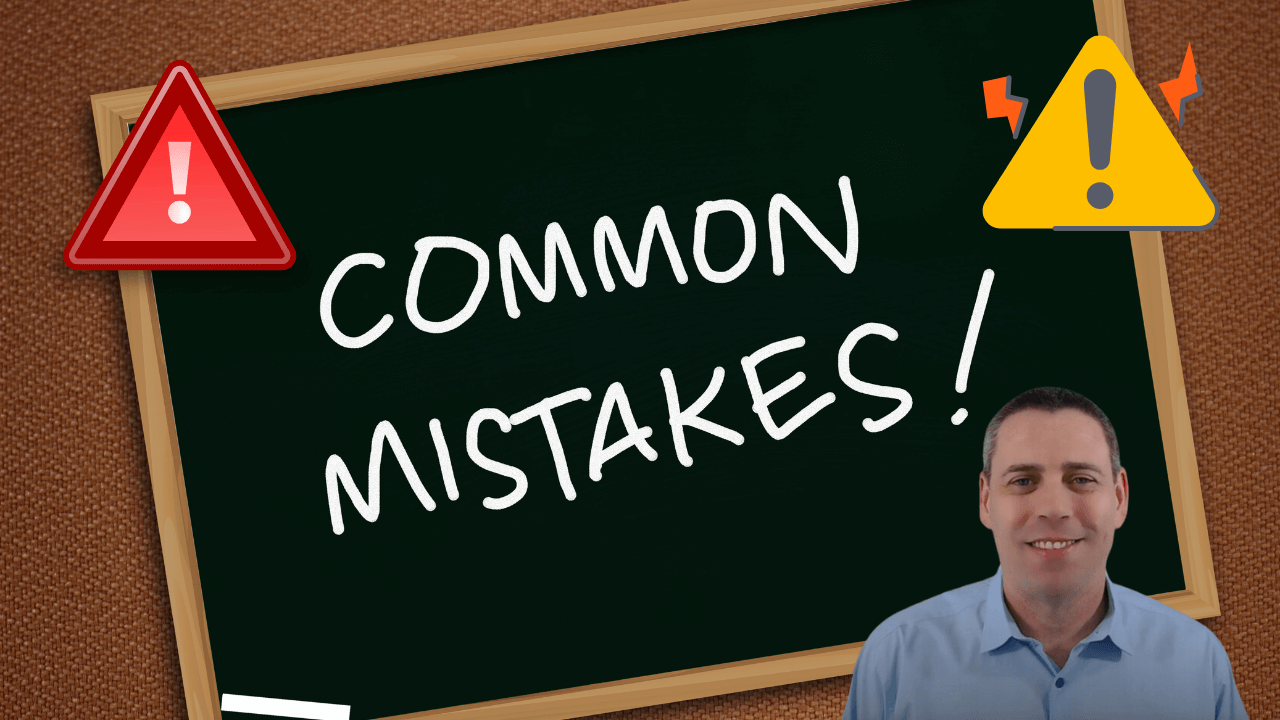Retirement planning is a crucial aspect of achieving financial security and enjoying a smooth transition into this new phase of life. However, many individuals make common mistakes that can have long-term consequences. By understanding these pitfalls and implementing effective strategies, you can avoid the negative impact of inadequate retirement planning.
Common Retirement Planning Mistakes
Let’s explore some of the common retirement planning mistakes to avoid that individuals often make. By recognizing these pitfalls, you can take steps to avoid them and ensure a more secure retirement.
Retirement planning is a crucial aspect of financial management that requires careful consideration and foresight. It involves setting realistic goals, making informed decisions, and adapting to changing circumstances over time. By avoiding common mistakes, you can better prepare for a comfortable and financially stable retirement.
Overlooking Inflation and Cost of Living Increases
One crucial mistake is failing to account for inflation and the potential impact it can have on your retirement savings. Over time, the cost of living will likely increase, eroding the purchasing power of your retirement income. It is essential to consider inflation when setting your retirement savings goals.
Furthermore, understanding the difference between nominal and real returns on investments is key to combating the effects of inflation. While nominal returns reflect the actual growth of an investment, real returns adjust for inflation, providing a more accurate picture of your investment’s performance. Learn more essential tips of retirement planning for self-employed individuals.

Underestimating Healthcare Costs in Retirement
Healthcare costs tend to rise as individuals age, making it crucial to plan for these expenses. Underestimating medical costs can result in significant financial strain during retirement. To avoid this, consider obtaining long-term care insurance and budgeting for potential healthcare expenses.
Moreover, staying proactive about your health and wellness can help mitigate some healthcare costs in retirement. Engaging in regular exercise, maintaining a balanced diet, and attending preventive screenings can contribute to a healthier lifestyle, potentially reducing medical expenses in the long run.
Neglecting to Consider Longevity Risk
Life expectancy has been steadily increasing, meaning you may potentially live longer in retirement. Failing to account for longevity risk can leave you unprepared for the financial demands of an extended retirement. It is important to consider this possibility when developing your retirement plan.
Additionally, incorporating strategies such as annuities or guaranteed income products into your retirement plan can help address longevity risk by providing a steady stream of income throughout your lifetime. By diversifying your retirement income sources, you can better safeguard against outliving your savings.
Understanding the Importance of Retirement Planning
Retirement planning goes beyond simply setting aside money for the future. It involves careful consideration of your financial goals and the steps necessary to achieve them. A well-executed retirement plan can provide peace of mind, ensuring that you have the resources needed to maintain your desired lifestyle during your golden years.
Planning for retirement also involves thinking about healthcare costs, potential long-term care needs, and other expenses that may arise as you age. By factoring in these variables, you can create a more comprehensive plan that accounts for all aspects of your future financial well-being.
The Role of Retirement Planning in Financial Security
One of the primary benefits of retirement planning is the assurance of financial security. By calculating your projected retirement needs, you can determine how much money you should save each year and invest accordingly. This proactive approach allows you to build and grow your retirement nest egg, ensuring a comfortable future.
Furthermore, retirement planning can also help you minimize taxes in retirement. By strategically allocating your assets in different types of accounts, such as traditional IRAs or Roth IRAs, you can potentially reduce your tax burden in retirement, allowing your savings to stretch further.
The Long-Term Impact of Poor Retirement Planning
Poor or inadequate retirement planning can have significant long-term consequences. Failing to save enough or make wise investment decisions can result in a retirement income shortfall. This can lead to financial struggles, reduced quality of life, and dependence on social security benefits and pensions.
Moreover, inadequate planning can also leave you vulnerable to unexpected expenses or emergencies in retirement. Without a solid financial plan in place, you may find yourself having to dip into retirement savings prematurely, potentially jeopardizing your long-term financial security.
The Consequences of Inadequate Retirement Planning
Inadequate retirement planning can have profound consequences that go beyond financial struggles. Let’s explore some of the potential impacts.
When individuals fail to adequately plan for retirement, they may not only face financial struggles but also encounter challenges in maintaining their desired lifestyle. Without a solid financial plan in place, retirees may have to compromise on their living standards, foregoing activities and experiences they had hoped to enjoy during their golden years. It is essential to consider not just immediate financial needs but also long-term goals when preparing for retirement.
Financial Struggles and Reduced Lifestyle Quality
One of the most significant consequences of inadequate retirement planning is financial struggles. Without proper savings and investment planning, retirees may find themselves unable to cover necessary expenses or enjoy the retirement lifestyle they had envisioned. It is crucial to prioritize retirement planning to avoid these difficulties.
Moreover, inadequate retirement planning can lead to a domino effect on other aspects of one’s life. Financial stress during retirement can spill over into personal relationships, causing strain and tension within families. By proactively addressing retirement planning needs, individuals can safeguard not only their financial well-being but also their overall quality of life.
Dependence on Social Security and Pensions
Reliance solely on social security benefits and pensions can leave retirees vulnerable to financial instability. As these sources of income may not fully cover your needs, it is crucial to supplement them with personal savings. Diversifying income sources provides added security during retirement.
Furthermore, depending solely on external sources of income can limit retirees’ financial independence and flexibility. By taking proactive steps to save and invest for retirement, individuals can maintain greater control over their financial future and reduce their reliance on uncertain government or corporate benefits.
The Emotional and Psychological Impact of Financial Insecurity
Financial insecurity can take a toll on your emotional and psychological well-being. Constant worry about money and the fear of running out of funds can lead to increased stress and reduced overall happiness during retirement. Effective retirement planning can help alleviate these concerns and provide peace of mind.
Additionally, the emotional impact of inadequate retirement planning extends beyond the individual to their loved ones. Family members may also experience heightened anxiety and concern when faced with the prospect of supporting a retiree who did not adequately plan for their financial future. By engaging in comprehensive retirement planning, individuals can not only secure their own well-being but also offer peace of mind to those closest to them.

Strategies for Effective Retirement Planning
Now that you understand the importance of retirement planning and the potential consequences of inadequate preparation, let’s explore some strategies to help you achieve a smooth transition into retirement.
One effective strategy for retirement planning is diversifying your retirement savings. Diversification is key to mitigating risk and maximizing returns on your retirement investments. By spreading your savings across various asset classes, such as stocks, bonds, and real estate, you can ensure a well-rounded and resilient portfolio. Consulting with a financial advisor can help you determine the best allocation for your circumstances, taking into account factors such as your risk tolerance and time horizon.
In addition to diversification, planning for healthcare and long-term care costs is crucial when preparing for retirement. As mentioned earlier, healthcare costs can escalate during retirement, and failing to account for these expenses can significantly impact your financial security. One strategy to safeguard your finances is to consider purchasing long-term care insurance. This type of insurance can help cover the costs of assisted living, nursing home care, and other long-term care services, ensuring that you receive quality care when needed without depleting your savings.
Furthermore, it’s important to recognize that retirement planning is not a one-time event but an ongoing process. As circumstances change, it’s essential to assess and adjust your retirement plan accordingly. Factors such as market fluctuations, lifestyle changes, and unexpected life events may necessitate revisions to your plan. Regularly reviewing your plan and making necessary adjustments will help ensure that it remains aligned with your goals and provides you with the financial security you desire.
In conclusion, retirement planning is a critical undertaking that requires careful consideration and proactive action. By understanding the importance of retirement planning, avoiding common mistakes, and implementing effective strategies such as diversifying your retirement savings, planning for healthcare and long-term care costs, and adjusting your retirement plan over time, you can achieve a smooth transition into retirement and enjoy the financial security and peace of mind that comes with it. Start planning today to secure a bright future for your retirement years.
Other resources: These cost-effective outdoor tiling rules will save you money

